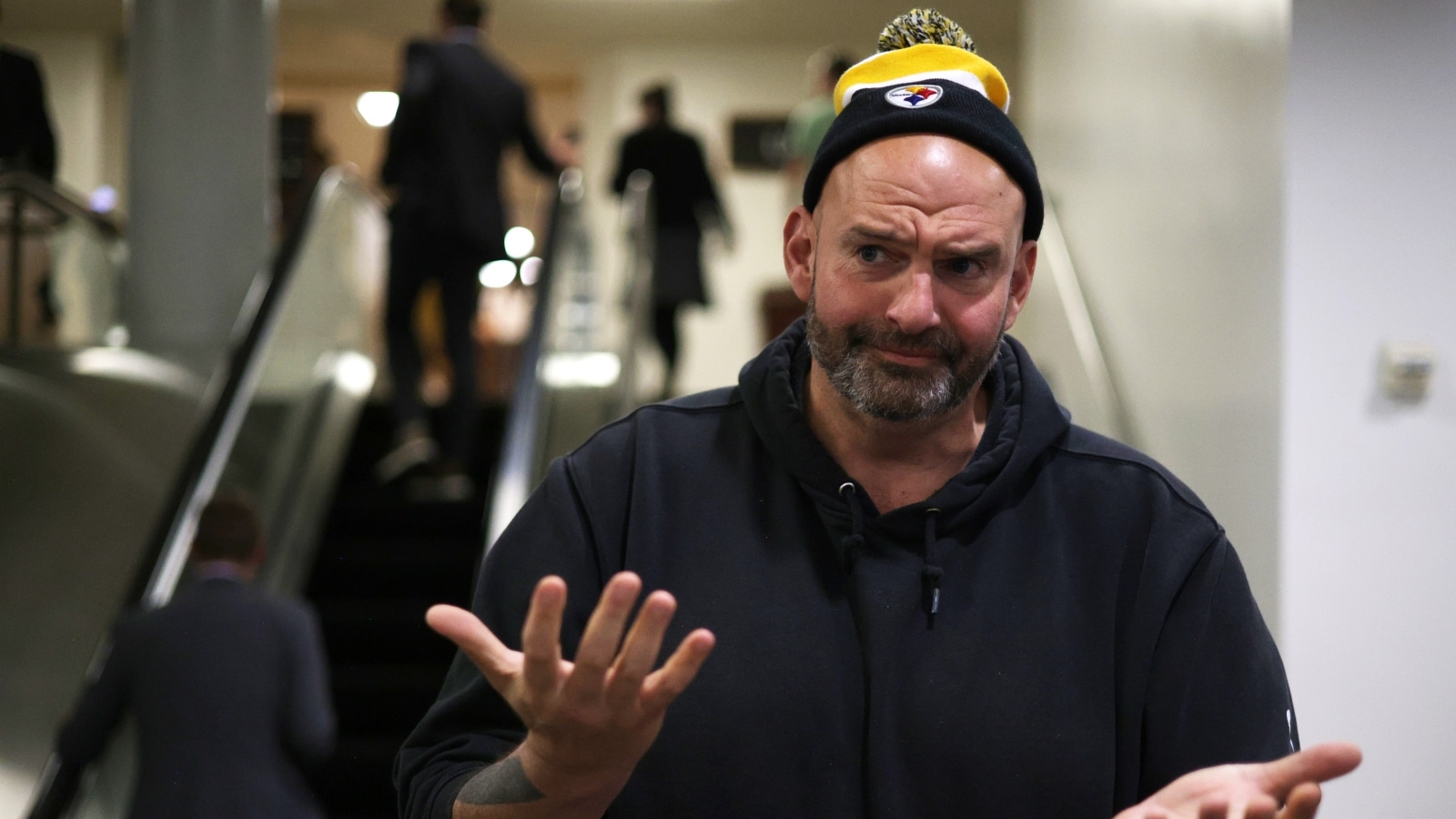OPINION: This article may contain commentary which reflects the author's opinion.
Democratic Sen. John Fetterman sparked controversy within his own party by asserting that “squatters have no rights,” in the face of growing concerns over uninvited guests taking over temporarily abandoned homes in blue cities.
Squatting has become a major problem, especially in blue cities and states, so Fetterman’s remarks are being seen by some on the right as running afoul of his party’s narratives on the issue, many of whom say squatters have rights.
In March of this year, a TikTok user gained significant attention for giving advice to illegal immigrants on how to use “squatters’ rights” in order to occupy empty houses after a New York resident was reportedly arrested for trying to remove such individuals from her own residence.
Fetterman strongly criticized the notion of allowing squatters to occupy someone else’s property and stated to the New York Post, “I am not woke.”
“Squatters have no rights,” Fetterman said. “How can you even pretend that this is anything other than you’re just breaking the law?”
“It’s wild that if you go away on a long trip, for 30 days, and someone breaks into your home, suddenly they have rights,” Fetterman continued. “This is crazy. Like if somebody stole your car, and then they held it for 30 days, then somehow you now have some rights?”
Fetterman also criticized lenient crime policies that permit repeat offenders to remain at large, citing the case of New York Police Department officer Jonathan Diller, who was allegedly killed by an individual with 21 previous arrests.
“If this individual is convicted, then he should spend the rest of his life in prison, and never have an opportunity to get out,” Fetterman told The Post. “If you have those kinds of established records, it doesn’t serve any greater goal to allow people that are offending, offending, offending and allow them to not be held accountable.”
The Democratic senator’s remarks come on the heels of new legislation signed by Florida Gov. Ron DeSantis that criminalizes squatting in the Sunshine State.
“We are putting an end to the squatters scam in Florida,” said DeSantis, according to a press release from his administration. “While other states are siding with the squatters, we are protecting property owners and punishing criminals looking to game the system.”
“Florida is once again leading the nation, this time in securing our state against squatters,” added Florida Attorney General Ashley Moody. “Biden has allowed millions of illegal immigrants to flood across the border. After video evidence of their plan to take over homes emerged, we’re ensuring Floridians are protected from this egregious and brazen scheme.
“I’m grateful to Governor DeSantis for signing this important legislation into law, and to Representative Kevin Steele for carrying this bill through Session,” she said after the governor signed HB 621.
The press release noted further:
Under HB 621, a property owner can request law enforcement to immediately remove a squatter from their property if the following conditions are met:
- The individual has unlawfully entered and remains on the property;
- The individual has been directed to leave the property by the owner but has not done so; and
- The individual is not a current or former tenant in a legal dispute.
“In Florida, it will be quick and simple to reclaim your home from squatters, avoiding costly delays, litigation, and missed rents,” it added. “HB 621 also creates harsh penalties for those engaged in squatting and for those who encourage squatting and teach others the scam.”
The law makes it:
- A first-degree misdemeanor for making a false statement in writing to obtain real property or for knowingly and willfully presenting a falsified document conveying property rights;
- A second-degree felony for any person who unlawfully occupies or trespasses in a residential dwelling and who intentionally causes $1,000 or more in damages; and
- A first-degree felony for knowingly advertising the sale or rent of a residential property without legal authority or ownership.
